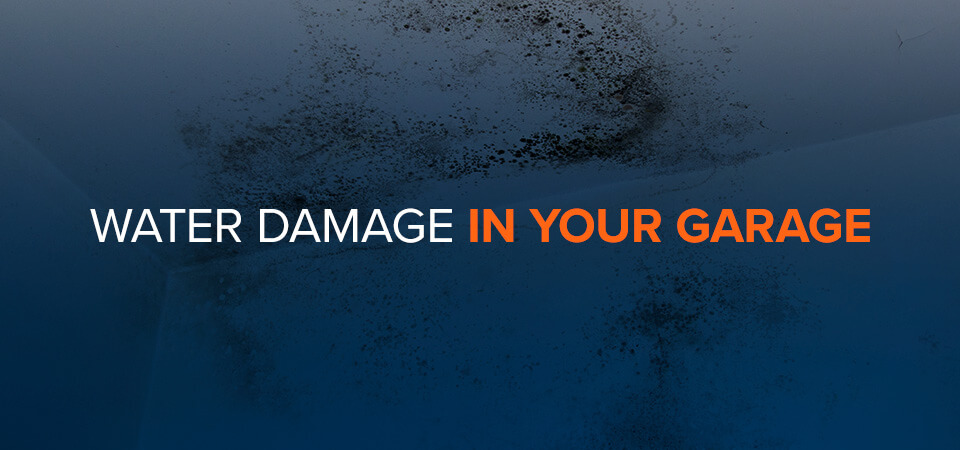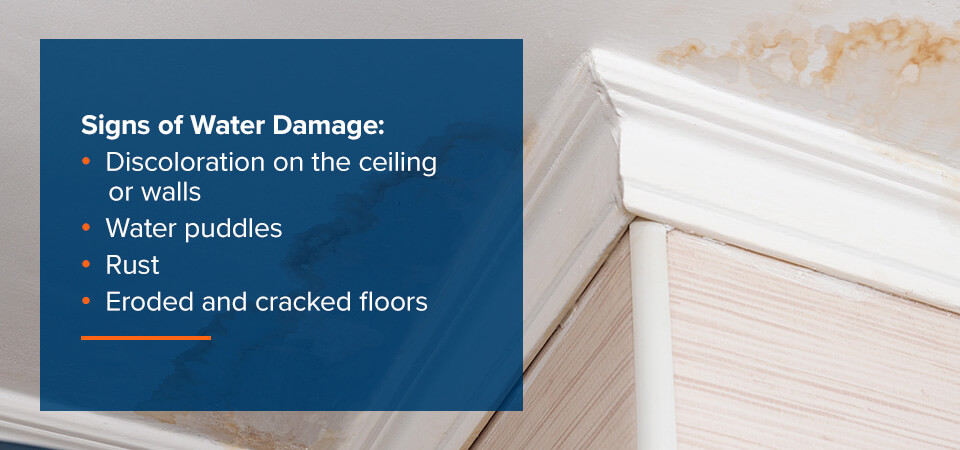

Your garage serves more purposes than one. While its main function is to keep your vehicle safe from the elements and the risk of being stolen, it also stores your personal belongings and may even double as a workspace. We don’t always give our garage the attention it deserves until it’s too late.
When you realize there’s water in your garage, the first thing you should do is inspect it for damage. Here’s more on why you should check signs of water damage and tips to prevent further damage.
Call (336) 830-8468 To Speak To An Expert
It’s important to protect your garage from water damage because it’s an asset that can increase or decrease your home’s value. Here’s why you should always keep an eye out if you notice a leak in your garage or you’ve experienced heavy rainfall.
The financial impact of water damage in your garage may range from minor to severe, depending on the extent. The cost of water damage in your garage might include:
Water can cause structural damage to your garage and the rest of your property because it can seep through walls and untreated concrete floors. Once it settles and is absorbed, you’ll notice discoloration and erosion on the surface. Cracks might also appear. Garages with older, worn floors are more susceptible to seepage. Allowing your garage to air-dry will help but if the water has penetrated too deep, it may cause the walls to become brittle and eventually expose the beams.
Another consequence of water damage is mold and mildew. If your garage has an unfinished ceiling, the drainage system is blocked or it lacks the proper insulation and ventilation for air to circulate, it creates the ideal environment for mold to grow. Severe mold can cause structural damage to your walls and ceilings. Removing the mold and finding the source is important. Mold may not always be visible as it can grow behind walls, but you’ll identify it by a stale, clammy odor hanging in the air.
Mold exposure also comes with negative health consequences, including:
It can also exacerbate health conditions like asthma and other allergies.
Finding leaks is important because it prevents further damage to your home. The following signs may help you identify and reduce water damage in your garage:

You can do a few things to help prevent water damage in your garage:
An effective drainage system is key to avoiding water damage. Ensure rainwater is directed away from the home and make sure your trench drain and catch basin are unclogged at all times to ensure any water can be caught without overflowing.
Garages are generally dark and humid and may lack sufficient ventilation to allow air to circulate. It could help to place a dehumidifier in a garage prone to humidity and moisture. Replacing small windows with larger ones is another option so you have full control over how much natural air and light enters.
To get a good idea of what you’re dealing with, clean your garage completely before inspecting the floor for cracks. Sweep the floor to remove dirt that can cover hairline cracks. Once you’ve identified any, use a proper sealer to close them up. It will be beneficial to redo the floor with another layer of concrete or waterproof sealer to ensure any cracks are covered. You’ll also have peace of mind knowing they won’t return any time soon.
Your garage door and any windows could allow water to enter from outside if they aren’t sealed properly. Check these each time it rains and reseal if necessary, especially the weatherstripping as it tends to go through wear and tear-related damage faster. If there’s damage to your garage door that’s causing more problems, contact a garage door contractor to inspect it for possible repairs or replacement.
Your roof and even plumbing may be the culprits behind your water damage issues. Inspecting your roof at least once every few months, especially during the winter, could help prevent water damage in your garage. If you notice decreased water pressure, hissing pipes or discolored water, you might have an issue with your plumbing that could lead to water damage.
Marvin’s Garage Doors is proud to offer 24-hour emergency garage door services if things ever get out of control, so don’t hesitate to call us to assist. We take care of our valued clients in Winston-Salem, Wilkesboro, East Bend, Lake Norman and all Piedmont triad of North Carolina.
If you’re interested in our garage door services, call us or request an estimate today.